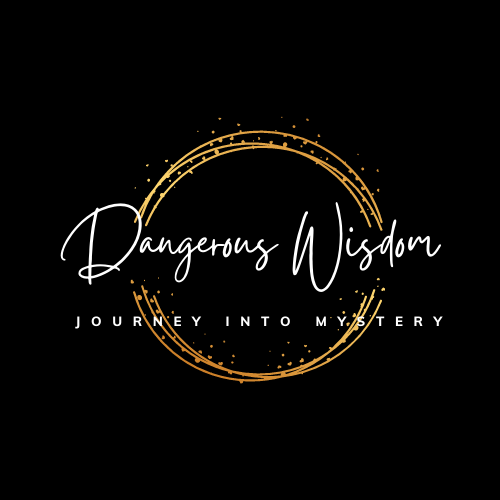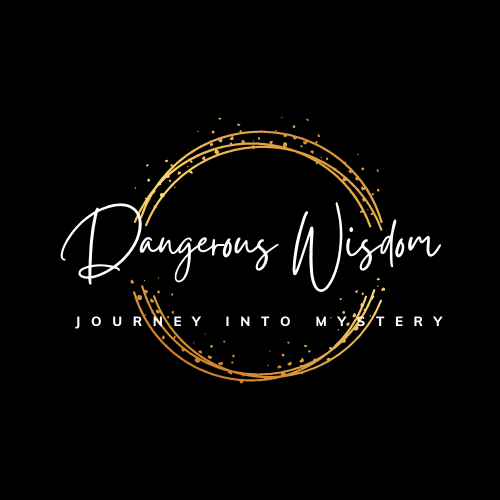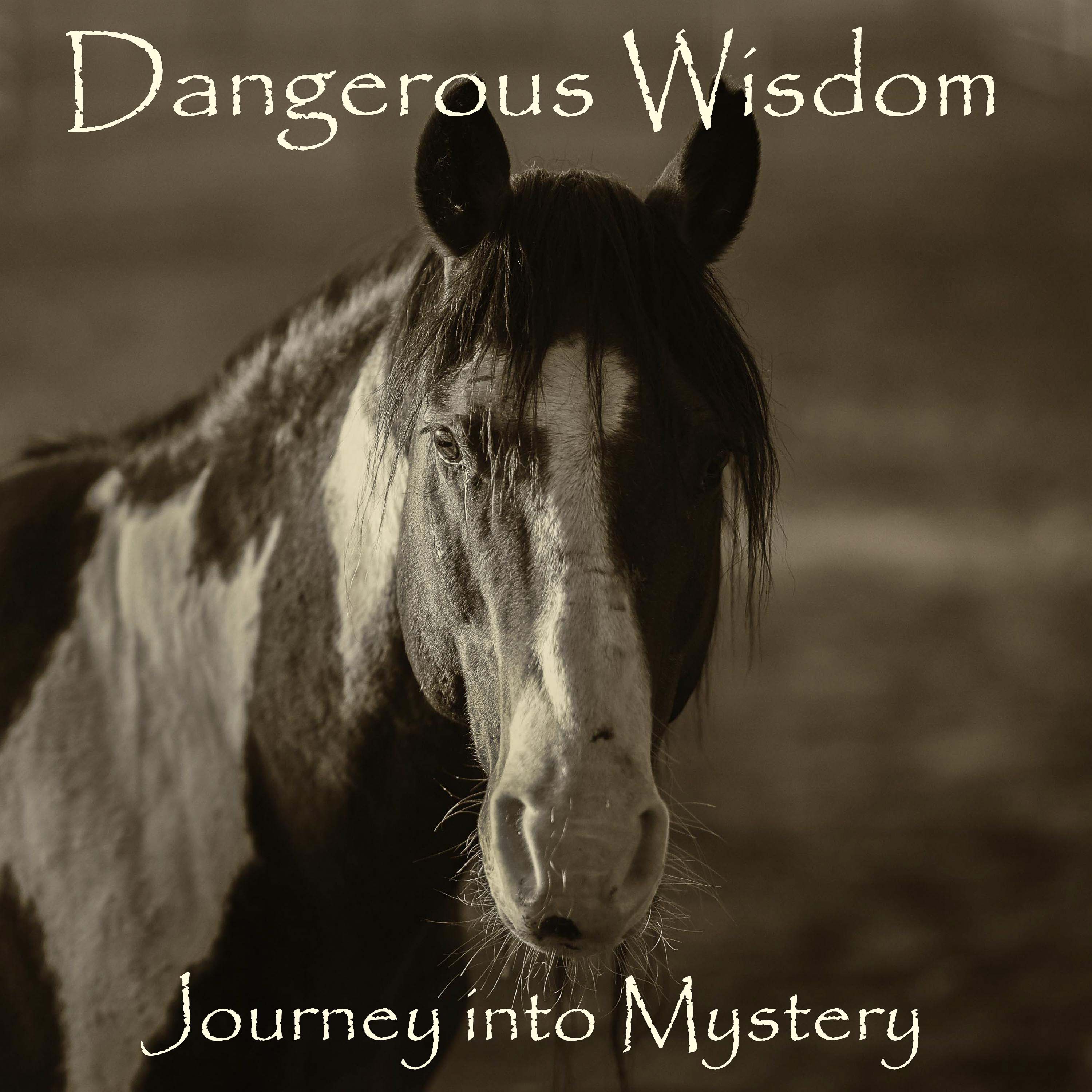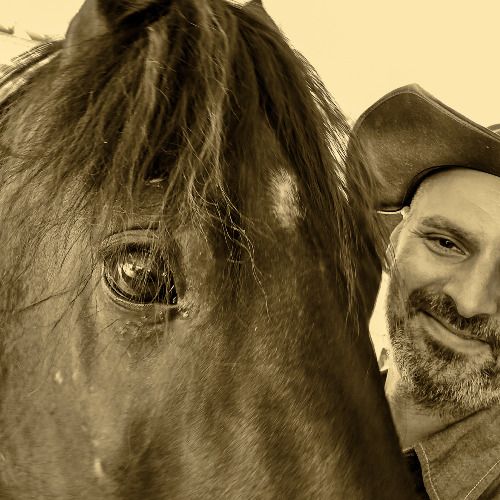5 Errors of Embodiment - Error 4 - Forgetting the Goals of Liberation, Ecology, and Nonlocality
Instead of becoming more “embodied,” we, in some crucial sense, need to become more . . . ecologied, encosmosed, and liberated into the mysteries of interwovenness, liberated into sacredness and wonder. If “embodied” signifies getting “into” our “body,” it misses our true need in a variety of ways.
For a free pdf of practices to help facilitate ecosensual awareness and a more ecological embodiment, visit the Dangerous Wisdom website:
https://dangerouswisdom.org/practices-of-a-sacred-place
Transcript
Five Errors of “Embodiment”—and How to Transcend Them
Note: This is a rough transcript. Since the Dangerous Wisdom podcast uses many names and terms that transcription software fails to recognize, a more accurate transcript is not possible at this time. But this version is as close as we can manage.
Listen here: https://dangerouswisdom.org/podcast
Or subscribe via your preferred podcast directory here: https://dangerous-wisdom.captivate.fm/listen
Welcome to Dangerous Wisdom, a journey into mystery and a gateway to the mind of nature and the nature of mind. This is dr. nikos, your friendly neighborhood soul doctor. I’m happy to be here with you so that together we can create a culture of wisdom, love, and beauty.
Auspicious interbeing to you and yours, my friends. Koinos Hermes, and a deep bow to Sophia.
4) Mistaking mind-body unity as the goal—rather than liberation (including insight into the nonlocality of mind and the ecology of mind)
We touched on this one above, but it has a lot of depth. At a basic level, it seems important to connect our somatic practices with liberation. We can elaborate on this when we discuss the next error, as well as when we discuss how to leap beyond all five of these errors. But it seems important to acknowledge our fullest potential as transcending what we might ordinarily associate with the idea of mind-body unity.
We could potentially become somatic or kinesthetic geniuses—exceptionally skilled at embodiment more narrowly construed—and we might nevertheless remain about as spiritually confused upon reaching that level of somatic realization as when we started out. Put another way, we have somatic geniuses on our Olympic and professional sports teams, but we know these somatic geniuses—as connected or in-tune with their bodies as they are—still suffer, and their somatic realizations don’t come with any guarantee of spiritual liberation.
We don’t think of gymnasts and ballet dancers as the saints and sages of our culture, and we don’t think of extreme athletes—even our beloved surfers and climbers, who speak in such spiritual terms about their sport—as having brought to perfection all the wisdom, love, and beauty a human can realize in a lifetime. We may love and admire them, and they may have had some marvelous experiences (and even some significant insights), but they so far haven’t appeared as world-turning teachers and liberators of souls. Nor do we actually expect them to.
In the context of the dominant culture, we could also suggest that, instead of becoming more “embodied,” we, in some crucial sense, need to become more . . . ecologied, encosmosed, and liberated into the mysteries of interwovenness, liberated into sacredness and wonder. If “embodied” signifies getting “into” our “body,” it misses our true need in a variety of ways.
Considering the state of the world, it seems evident that we need to release “into” our living, loving ecologies, “into” our cosmic-level vision, and into true peace, love, healing, and joy (including sympathetic joy). We have to touch a profound cosmic meaningfulness that most definitely transcends “embodiment” as the dominant culture tends to have us conceive of it (whether we agree with such conceptions or not).
Stuck in our body, we can miss the ecology of mind as well as the nonlocality of mind. Of course, something like the opposite holds as well: By means of more skillful and expansive experience, the relative body becomes a liberating aspect of a larger mandala, and by means of our embodiment we can directly participate in the whole.
As with the other errors, we don’t find this one absolute and unresolvable. Our practice of a holistic philosophy of life can help us experience the nonlocality of mind, and the ecological nature of mind as well, in, through, and as our embodiment—though also transcending it.
As Gregory Bateson tried to help us see, evolution itself is a mental process. In the spirit of a more holistic vision, we can think of evolution as a sacred, cosmic, ecological process, inherently involving embodiment, but not strictly limited to what we refer to as “bodies” or “the body”.
We may even suggest that we need ensoulment more than we need “embodiment,” as long as “ensoulment” involves the mystery and paradox of the nonduality and nonlocality of mind and matter. But we certainly need to suggest that much of the current theory and practice related to “embodiment” lacks sufficient ecological engagement.
For instance, ecstatic trance dancing in a built environment can make us feel a blissful “union” of “mind” and “body,” while it does little to nothing for the ecologies we depend on, and may, overall, merely degrade them. The same holds with our massive festivals staged in ecologies invaded by humans in accord with their fragmented purposes. Tens of thousands of humans can assemble in a place where no typical humans could actually live. Supported by the extraction and the conquest consciousness that allows them to get there and stay there for a brief spell, they can feel ecstatic. And yet their ecstasy has depended fully on conquest consciousness, and seems in various ways out of touch with a fuller vision of skillful embodiment.
When people leave such festivals, they may feel quite satisfied as they tell themselves they have left “no trace”. But the very notion that we could, or should, “leave no trace” stands in contradiction to any skillful and realistic understanding of embodiment.
We definitely need community, liminal spaces, and vibrant rites and rituals, vitalizing ceremonies and celebrations. And I’m sure as heck not saying we shouldn’t dance. I agree with Emma Goldman: If I can’t dance, I don’t want to be a part of your revolution. The point is that our activities in the name of community or dancing or both can seem to bring us closer to “mind-body unity” while functionally forestalling our fullest liberation because they ultimately keep us less ecologically and spiritually insightful than we could become.
We also need to recognize in a general way that our practices of embodiment, however well-intentioned, will not in and of themselves free us from the problems of spiritual materialism and spiritual anosognosia. Spiritual materialism means our practice of embodiment, though we may engage with it precisely to alleviate suffering and ignorance, can perpetuate suffering and ignorance in subtle and not-so-subtle ways. Spiritual anosognosia means that this process of perpetuating ignorance can unfold without our awareness.
Spiritual anosognosia indicates that any ignorance we have arises with unknown nature and limits. If we admit any ignorance at all, it means we must of necessity lack the insight and understanding to see how ignorance affects and limits us.
We don’t know everything, and we don’t know what we don’t know. That sounds almost goofy, and yet it has profound effects in our lives, and should encourage a great deal of humility in relation to our practices of embodiment—and our whole practice of life.
But sometimes, in our exuberance about embodiment, we can get hooked by the idea that we have all the answers “within” us. We can’t sense that the very means we used to arrive at whatever answers or insights have come to us—those very means often constitute what now remains off limits to us. Our very practices of embodied knowledge create the altered horizon of our ignorance.
The dominant culture limits us and restricts us in so many ways. We could even characterize the culture as a culture of ignorance. We have a lot of knowledge, but also a high degree of ignorance. Because of this very fact, we can discover pathways for transformative healing and insight that seem magical in their potency for liberating us from ignorance. But we may not fully recognize how fragmentary and limited our insights might yet be. Thus we can remain unwittingly, unknowingly stuck in fragmentation.
This has to do both with general human fallibility and general human ignorance. “Embodiment” can’t save us from all errors, and, in and of itself, it cannot erase all ignorance. And yet, people can become convinced that “the body has all the answers,” or that, in various ways, if we “check in” with the body, it will give us the guidance we need. It can get unintentionally egotistical and self-centered, and our notions about “having all the answers ourselves” can cover over the interwovenness of all things, including our knowing.
For instance, it makes a big difference if we ask whether a certain action is good, or if we ask if its benefits outweigh its total cost to all sentient beings. A trauma-informed yoga retreat in Bali might bring all manner of benefits to “my” “embodiment,” and I certainly have a right to heal. But at what cost?
Is that healing really okay with the world? Is this the real cost that my healing must have or should have for the world? Or can I heal in a way that doesn’t cost the world so much, a practice in which I don’t have to take so much from the world—because I’m caught in an ecology of taking? The dominant culture arises as an ecology of taking, and the variety and subtlety of all that taking can remain invisible to us those of us infected with conquest consciousness.
Here too, we seem to need more than “embodiment” as typically construed. Sure, people can say lovely things about embodiment, including flowery suggestions about the relationship between embodiment and ecology, ethics, values, and the great mystery itself. But part of “critical embodiment” would involve a great deal of care and compassion, so we truly heal self and world at the same time.
If you would like to get started with some ecologically-oriented practices of embodiment, you can click on the link in the show notes to get a free pdf of practices that can help you plant seeds of a more ecological and sacred embodiment.
For a free pdf of practices to help facilitate ecosensual awareness and a more ecological embodiment, visit the Dangerous Wisdom website:
https://dangerouswisdom.org/practices-of-a-sacred-place



